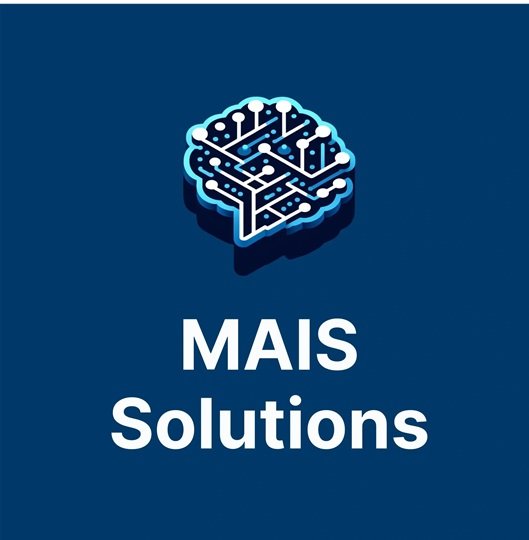Your cart is currently empty!
Coding and Programming
Back to: QA Guide to IT Training
These are the coding and programming courses that QA offers.
In the rapidly evolving world of technology, coding and programming skills are fundamental for anyone looking to build a career in software development, data science, cybersecurity, or cloud computing. Programming languages serve as the foundation for developing applications, automating processes, managing data, and enabling artificial intelligence.
This lesson provides an in-depth exploration of coding principles, popular programming languages, DevOps practices, security concepts, and hands-on learning experiences to help learners become proficient in modern software development. By the end of this lesson, learners will have a strong understanding of programming fundamentals, the ability to navigate various coding environments, and practical experience to help them build, optimize, and secure their own software solutions.
The Importance of Coding & Programming
With software-driven solutions at the core of every industry, coding has become a vital skill set for professionals across various domains. Mastering programming enables individuals to create innovative solutions, enhance problem-solving capabilities, and integrate automation into everyday workflows.
Why Learn Programming?
- Career Advancement: High demand for programmers in software engineering, data analysis, cybersecurity, and DevOps.
- Problem Solving: Enhancing logical thinking and creativity through coding.
- Automation: Writing scripts and programs to automate repetitive tasks, increasing efficiency.
- Software & Web Development: Building interactive websites, enterprise applications, and cloud-based solutions.
- Cybersecurity & Ethical Hacking: Using programming knowledge to secure systems and identify vulnerabilities.
Additionally, programming fosters a mindset of continuous learning and adaptation. As technology rapidly evolves, professionals who are proficient in coding will have the flexibility to shift between industries, adopt new programming paradigms, and contribute to cutting-edge innovations in artificial intelligence, blockchain, cloud computing, and beyond.
Core Programming Concepts
Before diving into programming languages, it’s essential to understand the foundational principles that govern how software is built and executed.
Key Concepts:
- Data Types & Variables: Handling integers, strings, arrays, and objects.
- Control Structures: Using loops, conditionals, and recursion to direct program flow.
- Functions & Modules: Writing reusable, modular code to improve maintainability.
- Object-Oriented Programming (OOP): Applying concepts like classes, inheritance, and polymorphism.
- Algorithms & Data Structures: Sorting, searching, trees, graphs, and hash tables.
- Error Handling: Implementing debugging techniques and exception handling for robust applications.
- Concurrency & Parallelism: Managing multiple processes and threads for efficient execution.
- APIs & Web Services: Understanding RESTful APIs and integrating external data sources into applications.
Programming Languages & Their Applications
Different programming languages are suited for various use cases, from web development to artificial intelligence.
Popular Programming Languages:
- Python: Used in web development, automation, AI, and data analysis.
- JavaScript: Essential for front-end and back-end web development.
- Java: Commonly used for enterprise applications and Android development.
- C++: Applied in system programming, game development, and high-performance computing.
- Go (Golang): Designed for scalable and concurrent cloud applications.
- SQL: The primary language for database management and querying large datasets.
- TypeScript: A strongly-typed version of JavaScript, ideal for large-scale web applications.
- Rust: A memory-safe systems programming language gaining popularity in embedded and blockchain development.
Understanding the strengths and weaknesses of each language allows developers to select the best tools for their projects and optimize their coding efficiency.
DevOps & Secure Software Development
Modern programming is closely linked with DevOps practices, cloud integration, and security-first development methodologies.
Key DevOps Practices:
- Version Control: Using Git for collaborative coding and version management.
- CI/CD Pipelines: Automating code deployment and integration.
- Infrastructure as Code (IaC): Managing cloud infrastructure with tools like Terraform and AWS CloudFormation.
- Containerization & Orchestration: Deploying applications using Docker and Kubernetes.
- Monitoring & Logging: Utilizing tools like Prometheus, Grafana, and ELK Stack for system monitoring.
- Cloud-Native Development: Designing applications that seamlessly integrate with cloud platforms such as AWS, Azure, and Google Cloud.
Security in Coding:
- Secure Coding Practices: Writing code to prevent vulnerabilities such as SQL injection and XSS attacks.
- Penetration Testing: Using ethical hacking techniques to test and secure applications.
- DevSecOps: Integrating security best practices into DevOps workflows.
- Cryptography: Understanding encryption, hashing, and secure authentication protocols.
- Compliance & Data Protection: Ensuring software adheres to GDPR, HIPAA, and other regulatory standards.
Hands-on Coding & Programming Labs
To solidify programming knowledge, learners can engage in practical exercises and hands-on labs.
Featured Labs:
- Introduction to Python for Beginners: Writing scripts and handling data.
- Java Development Playground: Practicing OOP concepts in Java.
- Building a Web Application with JavaScript & HTML: Front-end and back-end integration.
- DevOps with Kubernetes: Deploying microservices-based applications.
- SQL Querying for Data Analysis: Writing and optimizing database queries.
- Secure Coding Challenge: Identifying and fixing security vulnerabilities in code.
- GitHub Workflow & Version Control: Managing collaborative projects with Git.
- Machine Learning with Python: Implementing ML models using scikit-learn.
- Web API Development: Creating RESTful services with Node.js and Express.
All In All:
Coding and programming are critical skills in the digital economy, empowering individuals to build software solutions, automate workflows, and enhance cybersecurity. By understanding fundamental coding concepts, mastering key programming languages, and implementing secure DevOps practices, learners can prepare themselves for careers in software development, cloud computing, and beyond.
This lesson equips learners with theoretical knowledge and hands-on experience, ensuring they can confidently apply their coding skills in real-world projects. As technology continues to advance, continuous learning and hands-on practice will remain essential for staying competitive in the field of programming. Whether one is a beginner just starting their journey or an experienced developer looking to expand their skill set, coding remains a gateway to innovation and career growth in the modern digital landscape.
